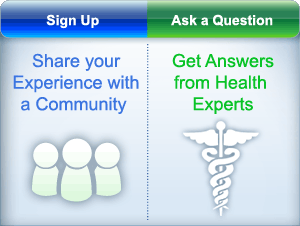Health Chats
HIV Prevention and Safe Sex
Tuesday Apr 07, 2009, 03:00PM - 04:00PM (EST)
If you've ever had a condom break or had unprotected sex, you've probably wondered about your risk of contracting HIV. If you believe you might have been exposed to HIV and want help to judge your risk, would like advice about HIV testing, or have questions about the effectiveness of condoms or the risks associated with specific sexual practices, join Dr. H. Hunter Handsfield in this hour-long chat and get answers to your questions.<br><br>
As the Director of the STD Control Program for Public Health and on the Board of Directors of the International Union against Sexually Transmitted Infections and American Social Health Association, Dr. Handsfield is a renowned expert in the study of infectious disease. In this live health chat, Dr. Handsfield will answer your questions about sexual activity with low risk exposure to HIV, such as oral sex, condom-protected intercourse, hand-to-genital exposure, and nonsexual contact with possibly infected blood or body fluids, as well as symptoms of early HIV infection.<br><br>
Note: Questions about the treatment of HIV/AIDS or its complications, viral load or similar topics will not be addressed in this chat. Questions about STDs other than HIV will also not be permitted. If you have a question about STDs, please join Dr. Handsfield on March 31st for the <a href="/health_chats/register/6">Living with STDs Health Chat</a>.

H. Hunter Handsfield, MD:
The premise is wrong. I am not aware of any data that say ejaculation increases risk of transmisison. Logically, it probably increases male to female transmission, or of transmission from a penile to an anal partner, but not from vagina or anus to penis.

latenight:
What is the correlation between circumsicion and hiv transmission? Is it worth getting circumsized as an adult to decrease chance of transmission?

H. Hunter Handsfield, MD:
Excellent question. Other things being equal, being uncircumcised increased HIV acquisition by men by about double (although it has no effect in male to female transmission rates). On a poplation level, i.e. looked across whole countries or societies, the more men who are circumcised, the lower the overall HIV rates. However, among most sexually active people in the US, it is unlikely that circumcision is protective enough to go through the surgery. However, the results of some excellent research trieals on this are beginning to influence some experts recommendations about routine newborn circucision of boys. It will be interesting to see how this plays out, given the religious and other determinants and strongly-held beliefs by some people about the importance of having an intact foreskin. Stay tuned.

sportster334:
Are women who have sex with women at risk for catching HIV?

H. Hunter Handsfield, MD:
In general, exclusively lesbian women are at lower risk than heterosexual men and women or gay men for HIV and most STDs. However, they have just as high a risk for HPV and actually higher risks for some vaginal infections, especially bacterial vaginosis (BV).

hazeleyes22:
Hi, I have not been tested yet, I have a few questions on when I should get tested and how much risk I am at. I had unprotected vaginal sex a few times but not all the way through unprotected. Wore a condom at the start, took it off but he didnt not cum in me. Im wondering what my chances are of not contracting and when should I test? How much does having an undetectable viral load play in the part in transmitting HIV to someone else? Thank you so much for having this service ! Thank you thank you thank you.

H. Hunter Handsfield, MD:
As a non-mutually-monogamous sexually active person, you should have routine STD and HIV testing from time to time, like once a year or so. Just common sense. But your actual risk for HIV is very low.

stl121:
My girlfriend has undergone complete health check up. In that there is nothing about HIV. But it shows VDRL is non reactive. Did it means HIV Negative?

H. Hunter Handsfield, MD:
VDRL is a syphilis test. It has nothing to do with HV.

BK2005:
Does taking an HIV RNA test after an exposure exclude you from the 6 month antibody testing?

H. Hunter Handsfield, MD:
Not really. The RNA tests can miss a few infections, and they really aren't designed primarily to detect new infection. Have an antibody test as well.

Jack615:
I have some symptoms such as fever and as well as geographic tongue that I think might be related to being infected with HIV. If I wanted to rule out HIV as the cause of these symptoms could I get tests now (25 days after exposure) and confirm HIV is not the cause if I test negative?

MedHelp:
This will be our last question as our time is up. Thank you for attending and thank you Dr. Handsfield for your time

H. Hunter Handsfield, MD:
This will have to be the last question. In general, HIV symptoms develop as antibody levels are rising. Most people with HIV related symptoms will have positive tests, especially if the symptoms have been present for mroe than 1-2 weeks. But your symptoms don't sound like HIV, so I wouldn't be very worried about them.

H. Hunter Handsfield, MD:
Thank you all for your attention. Stay safe!

MedHelp:
Thank you Dr. Handsfield, and again, thank you everyone for attending.


